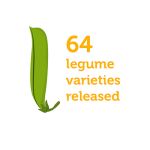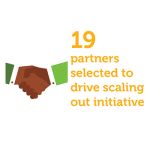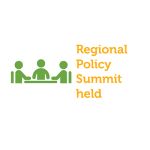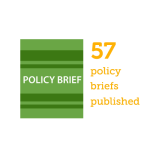Our latest impressions and news
About SIMLESA
SIMLESA is financed by the Australian Centre for International Agricultural Research (ACIAR). It is led by the International Maize and Wheat Improvement Center (CIMMYT).The project is an international collaboration involving national agricultural research institutes in seven countries (Ethiopia, Kenya, Malawi, Mozambique, Rwanda, Tanzania and Uganda).
…International partners include CGIAR centers, Queensland Alliance for Agriculture and Food Innovation (QAAFI) of the University of Queensland, Australia and the Association for Strengthening Agricultural Research in Eastern and Central Africa (ASARECA) and the Agricultural Research Council (ARC) of South Africa.
- Research: The technology focus was on testing and piloting locally-adapted and smallholder-appropriate conservation farming methods.This aims at contributing to sustainable intensification in eastern and southern Africa. The social science focus has focused on the analysis of the market, policy and value chain enablers of conservation agriculture-based sustainable intensification (CASI).
- Seed Systems: Efforts have been made in strengthening local seed systems for the delivery of appropriate maize and legume varieties. Hence, pilot scaling programs have been funded and monitored for documenting lessons on appropriate scaling strategies for CASI.
Our work
- Adoption and economic potential: At the end of 2017, over 230,000 farmers were reported to have adopted sustainable intensification technologies. Evidence from agronomy and economics research in SIMLESA indicated that reductions in labor use of up to 50% and yield increases of up to 37% were possible if farmers adopted CASI practices.
Illustrating the potential large economic benefits from wide up take of these practices by farmers.Therefore; socioeconomic, market and policy studies made available large open access data sets covering more than 5, 000 households and 508 villages across project countries. - Scaling: The scaling pilots have generated useful lessons on scaling modalities for CASI farming methods. A total of 58 innovation platforms were involved in scale out efforts. Strengthening of maize and legume seed systems was a critical enabler of CASI. As a result, in collaboration with national and international breeding programs, SIMLESA facilitated the release of 40 maize and 64 legume user-evaluated and preferred varieties.
- Capacity building: SIMLESA also supported graduate and non-degree training of early and mid-career scientists leading to 65 postgraduate students who studied in Australia, and African universities (23 of them being PhDs). As a result, these efforts strengthened scientific exchange between African universities and those in Australia and elsewhere.
Key highlights from the SIMLESA program

SIMLESA, in collaboration with other programs, facilitated the release of 40 new maize varieties. Many of which were specifically selected for their drought tolerance and some of which were selected for their phenotypic characteristics suitable for maize-legume intercropping in conservation-agriculture systems.

A total of 58 Innovation Platforms were established to assist in scaling out of Sustainable agricultural intensification (SAI) technologies and viable marketing of agricultural produce for maximum benefits.

Considering the importance of legume in food security and plant based protein nutrition of many families, SIMLESA co-sponsored participatory varietal selections (PVSs) sessions involving 378 legume varieties.
A total of 64 varieties across the five program countries positively met PVS team’s criteria and therefore were acceptable for official release.

Toward the end of 2016, the program managed to competitively select 19 partners to drive the scaling out initiatives under the Competitive Grants Scheme (CGS).

A regional policy summit was held in October 2015 which resulted in the signing of a Ministerial Cummunique by five countries (Ethiopia, Kenya, Tanzania, Mozambique, Rwanda).As a result, they committed to the mainstreaming of SIMLESA results in their countries’ agricultural policies.

The project has been determined to reach out to the policy community with the publication and dissemination of more than 57 policy briefs. These have been variously disseminated at project annual meetings, other gatherings and also can be found on this page
SIMLESA activities also led to the identification of maize varieties compatible with intercropping systems, water conservation and labor savings from CA technologies. While superior maize and legume yields from rotations in CA were realized in all five countries across Eastern and Southern Africa. The positive impacts of CA practices on risk, incomes and the environment were also analyzed and disseminated. Similarly, innovation platforms and other strategies contributed to scaling-out, with maize-legume sustainable intensification technologies being adopted by over 235,000 farmers.
SIMLESA Objectives
Adaptive Agronomy Research
To test and develop productive, resilient and sustainable smallholder maize-legume cropping systems and innovation systems for local scaling out.
Socioeconomics, Policy and Markets Research.
To characterize maize-legume production and input and output value chain systems and impact pathways, and identify broad systemic constraints and options for field testing.
Maize and Legume Seed Systems Development
To increase the range of maize and legume varieties available through accelerated breeding, regional testing and release, and availability of performance data
Identifying Effective Scaling Modalities
To support the development of regional and local innovations systems
Capacity Development
Building to increase the efficiency of agricultural research today and in the future